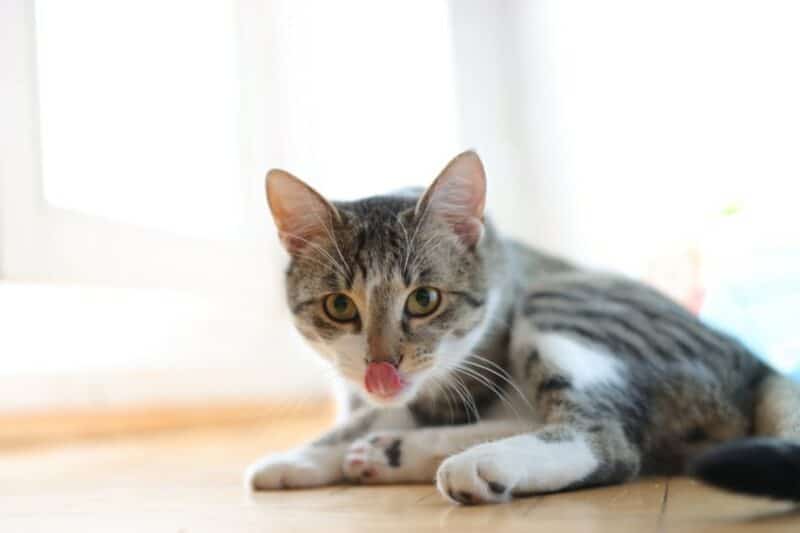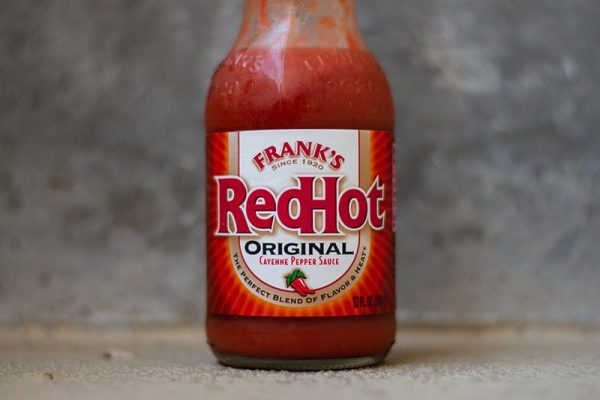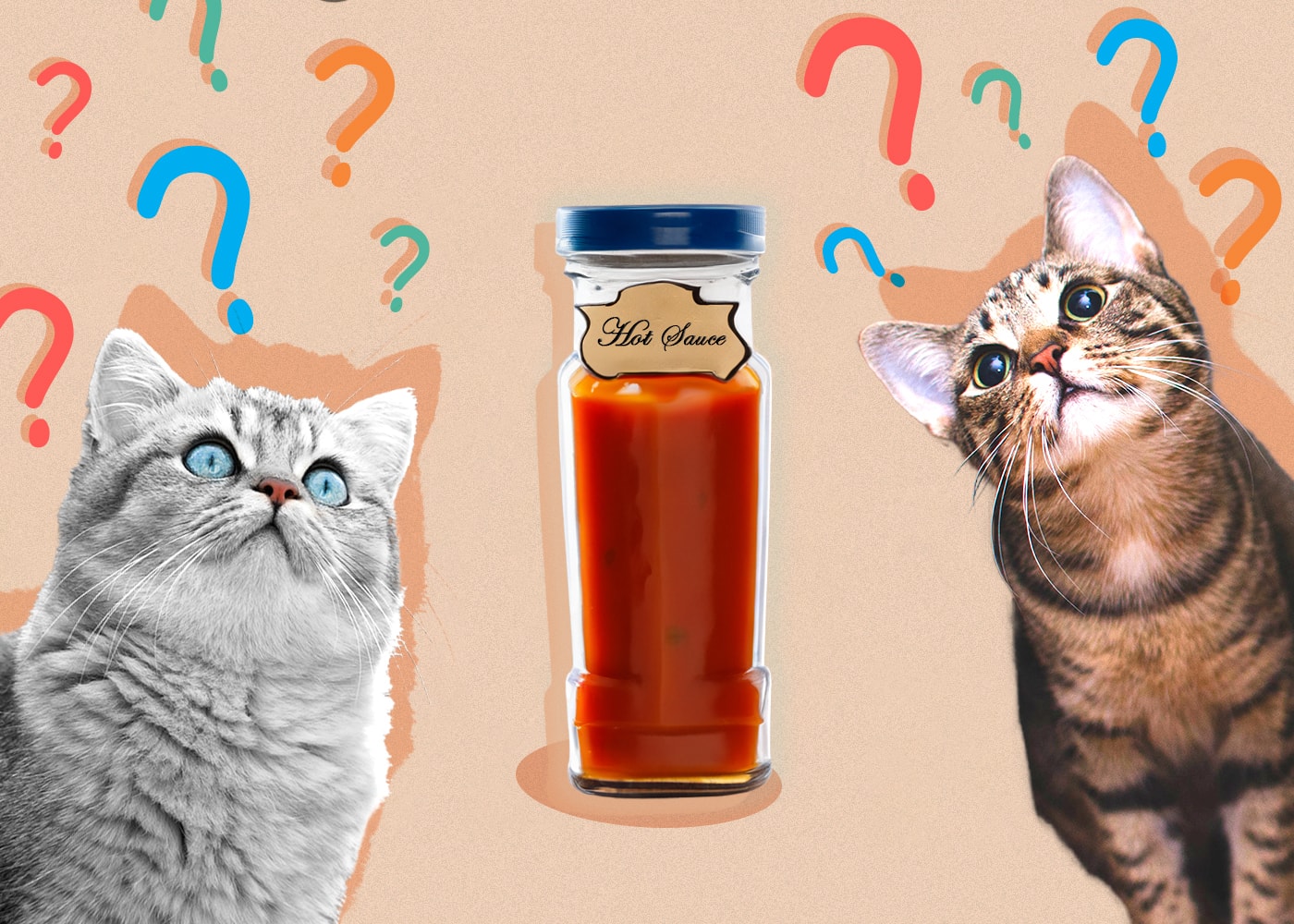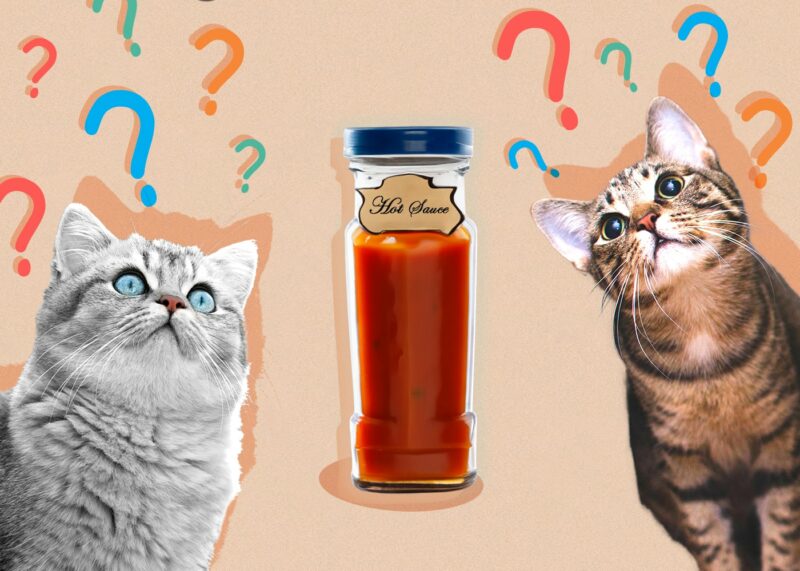Knowing what your pet can and can’t safely eat is part of your responsibility as a pet owner. Unfortunately, no matter how careful you are, cats have their own mind. Sometimes they eat things that they shouldn’t, and smelly human foods are common culprits. Cats can be attracted to hot sauce due to its strong smell, but is it safe for them to eat? The short answer is no, it is not healthy for cats to eat hot sauce. While a small lick isn’t likely to hurt them, it can irritate your cat’s mouth and offers absolutely zero nutritional benefits for them.
Eating hot sauce in large quantities can make your cat sick. Let’s explore why hot sauce isn’t safe for cats and what to watch for if your cat does eat it.

Do Cats Enjoy Hot Sauce?
The primary purpose of hot sauce is to add flavor to food. The smell of hot sauce is often attractive to cats, but do they like the taste? Cats don’t always taste food because they like it. Sometimes they do so purely out of curiosity.
Cats are obligate carnivores, meaning their primary food source is meat. Meat isn’t a naturally spicy food, and cats don’t crave “spice” or “flavor” in their meat the way that humans do. Since cats rely on meat for survival, their taste buds are built to accommodate their diet. While humans have over 9,000 taste buds, cats have only a few hundred. That said, the only flavor that cats can’t taste is sweet. They can taste sour, bitter, and salty.

Can Cats Taste Hot Sauce?
Technically, spicy is not a taste but a pain signal. Given the repertoire of a cat’s taste buds, it is quite likely that they can taste the flavor of some of the ingredients in hot sauce. But even if your cat can taste some flavors in the hot sauce, they will not likely enjoy the spiciness.
Hot sauce typically contains a substance called capsaicin. This compound can cause mouth irritation in cats that consume it. This phenomenon is true for humans too, but for most people, a much higher quantity of hot sauce is required for it to cause irritation.
Most of the time, the burning sensation that they experience in their mouth is enough to stop cats from eating hot sauce in large quantities. If their mouth becomes irritated, most cats will assume that the food is bad and stop eating it.

Is Hot Sauce Toxic to Cats?
Hot sauce provides no nutritional value for your cat, and it isn’t safe for them to eat either. A small lick isn’t likely to cause any significant harm, but a large amount of hot sauce could make your cat very sick.
The reality is that large quantities of hot sauce make humans sick too. Overconsumption in people that suffer from chronic digestive problems can lead to gastrointestinal upset, nausea, and a burning sensation throughout the digestive tract. These signs can be caused by capsaicin, and it may affect cats in the same way.
Overeating hot sauce will cause your cat to have digestive issues and general irritation of the gastrointestinal tract. Just a small amount of hot sauce can irritate your cat’s system, so make sure you keep them away from it.
Hot Sauce Ingredients That Are Toxic
Commercially prepared hot sauce often contains ingredients like onions, garlic, peppers, and tomatoes for flavor. Some of these ingredients are toxic to cats.
Garlic and onions, especially the powdered forms, are very dangerous to cats. All members of the Allium family, such as onions, shallots, and leeks, are harmful. However, garlic is approximately five times more toxic than the rest.
These foods contain substances that damage the cat’s red blood cells. Eating these can cause serious health problems or even death if consumed in large quantities. Initial signs include vomiting, diarrhea, loss of appetite, and abdominal pain. After a few hours or days, they will experience rapid breathing, increased heart rate, blood in the urine, weakness, and collapse.

What Happens to a Cat That Eats Hot Sauce?
If your cat only had a small lick of hot sauce, it’s unlikely that anything will happen, but it’s important to watch for changes in their behavior or signs of toxicity. This is especially true if you are unsure how much hot sauce your cat may have consumed or whether the hot sauce contains toxic ingredients.
Since your cat probably can’t digest hot sauce properly, they are likely to experience digestive issues, including:
- Vomiting
- Diarrhea
- Drooling
- Nausea
- Loss of appetite
- Stomach pain
Depending on the ingredients in the hot sauce, cats can experience more serious problems, like being lethargic or becoming uncoordinated and stumbling around. If your cat exhibits these signs after eating hot sauce, you should contact your vet or local animal emergency department immediately for assessment and treatment.
Final Thoughts
Sometimes, no matter how diligent you are, cats get into things that they shouldn’t. It’s important to make sure your cat doesn’t have access to hot sauce, but if your cat’s curiosity gets the best of them, watch closely for abnormal signs. Luckily, most cats are deterred by the mouth irritation that they experience with a small lick. As always, if you are concerned about your cat eating hot sauce or they are experiencing symptoms, contact your veterinarian for advice.
See also:












